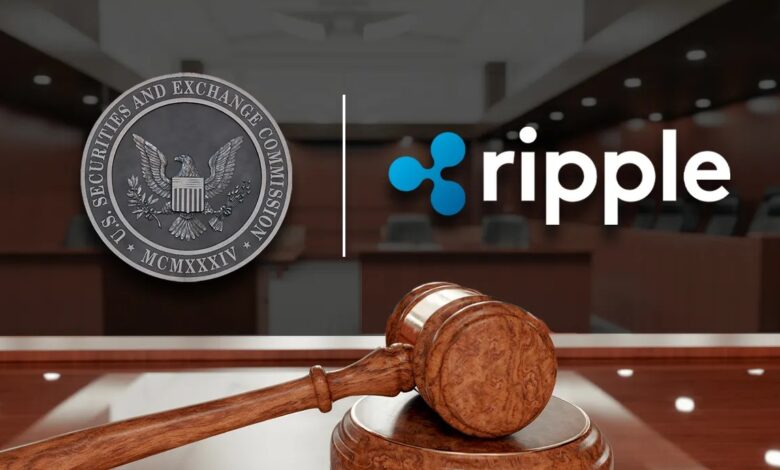
In a significant move, Ripple Labs has taken a bold step to contest the U.S. Securities and Exchange Commission (SEC) by filing a Form C cross-appeal in the US Court of Appeals for the Second Circuit. This legal maneuver aims to dispute critical elements of the SEC’s lawsuit against Ripple. The cross-appeal targets a previous decision that categorized specific XRP transactions with institutional investors as securities. Additionally, it serves as a direct counter to the SEC’s recent appeal on October 16, which contested a favorable district court decision for Ripple from earlier this year.
Ripple’s Strategic Legal Counter Through Form C Filing
Ripple’s decision to file a Form C cross-appeal has generated considerable interest within both legal circles and the cryptocurrency community at large. Stuart Alderoty, Ripple’s Chief Legal Officer, confirmed this strategic move in a social media post. He emphasized that the appeals process will not introduce new drama into the case, as the Appeals Court will strictly review the existing record. Importantly, the SEC will not be able to present new evidence or demand additional documentation from Ripple.
In a message to the community, Alderoty stated, “Today, Ripple filed a Form C – listing the issues we plan to raise on our cross appeal. A few things to keep in mind as we move forward: The case is not about whether XRP, in and of itself, is a security. XRP is uniquely situated as having clarity (alongside BTC) in not being…”
This appeal seeks a de novo review of all case aspects, including whether Ripple’s XRP transactions meet the criteria of securities under the Howey test. The Howey test, established by a 1946 Supreme Court decision, evaluates whether a transaction constitutes an investment contract by considering factors like monetary investment and profit expectations from the seller’s activities.
The request for a de novo review is particularly significant, as it essentially calls for a fresh examination of these complex issues and their implications for cryptocurrencies and other industry sectors.
Challenging The SEC’s Approach to Cryptocurrency Regulation
Ripple’s Form C filing not only challenges the SEC’s stance on XRP but also highlights what it describes as vague and inconsistent statements from the agency regarding the application of securities laws to digital assets. The SEC has consistently maintained that XRP’s sales qualify as securities, thereby requiring Ripple to comply with federal securities regulations. However, Ripple’s recent filing underscores the regulatory ambiguity that has left the cryptocurrency sector uncertain about SEC compliance requirements.
Utilizing the Howey test, the court previously ruled that sales of XRP to the general public did not constitute securities. Yet, it classified early sales of XRP to institutional investors as unregistered securities offerings, leading to a $125 million civil penalty imposed on Ripple.
By seeking a de novo review and applying the Howey test, Ripple aims to challenge the $125 million penalty it was ordered to pay. The outcome of this cross-appeal could have widespread implications for the entire cryptocurrency industry. A favorable ruling for Ripple might set a precedent for future cases, potentially redefining the SEC’s regulatory reach over the crypto sector. Conversely, a ruling in favor of the SEC could further cement the agency’s authority to apply securities laws to the industry.
“`
This version of the content is enhanced with HTML headings and enriched with additional information to ensure it is SEO-friendly while maintaining clarity and coherence.







